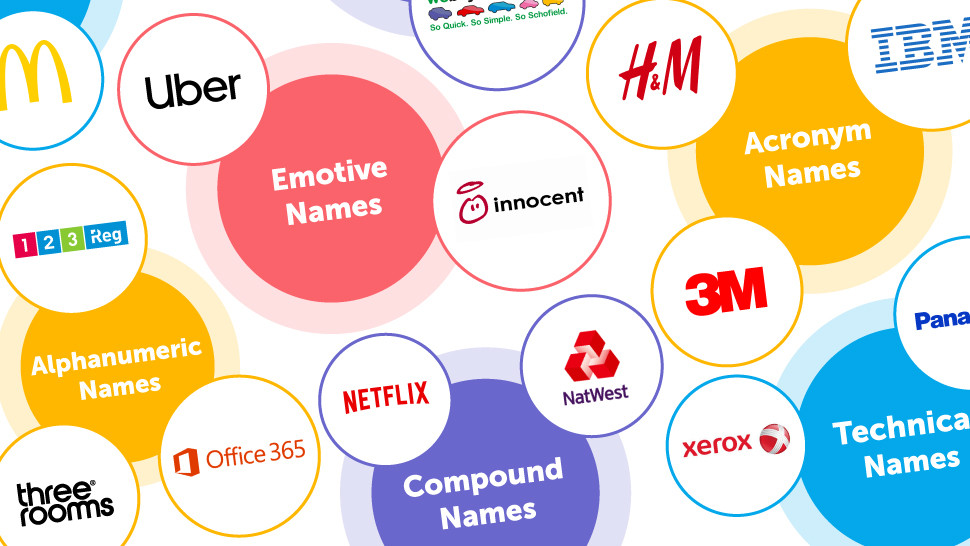Branding is an important part of building a successful business. It helps businesses differentiate themselves from competitors and establish an identity that connects with their customers. To develop a brand identity for your business, it is important to know the different kinds of branding strategies.
Your brand’s identity is the combination of many attributes – including logo, color scheme, voice and tone, and more. However, the name of your brand is the first and leading identifier

What is a brand?
A brand is the characteristics that distinguish a business, organization, product or service from other sellers. Often, businesses identify their brand using unique symbols, terms, names, designs or other features that represent their organization and its values. Businesses use their brand in their marketing strategies to gain recognition from their customers and differentiate themselves from competitors. A brand accumulates value when customers associate individual businesses with the quality of their products and services.
Why are brands important?
Brands are important for making businesses recognizable to their current and potential customers. They are also used to communicate with customers by promoting what the business specializes in and how they compare to their competitors. It is important for business owners to develop a brand for their business to help market their products, services and ideals to their target customers.
What are the types of brand names?
Descriptive names: These types of names describe what the business does and are often used by companies in industries such as food, travel, and retail. While effective in communicating the company’s offerings and benefits, they can also be limiting in terms of brand differentiation. Examples of descriptive names include General Electric and Burger King.
Suggestive names: Suggestive names hint at the benefits or qualities of the product or service. They can be more creative and memorable than descriptive names while still conveying a message to customers. Examples of suggestive names include Spotify (benefit: spotting new music) and FitBit (result: getting fit).
Regional names: These names declare where the product or services are used and can be as specific as a hometown location. Regional names can be effective in building a strong community, yet they can be limiting for companies that want to expand beyond their local area. Though Southwest Airlines (founded in Texas) and Boston Market had minimal problems.
Abstract names: Comprised of words or phrases that have no direct relation to the business or its offerings, abstract names can be memorable and allow for more creative branding. On the flip side, they may not immediately communicate what the business does, leading to a disconnect. The technology industry loves abstract names (think: Asana and Soona.)
Acronyms:We all know what an acronym is. They can be memorable and allow for a short, simple brand name. However, acronyms can be confusing for customers who are not familiar with the company or product. Acronyms are extensive in the business world and include IBM, BMW, BASF, etc., etc.
Associative names:Associative names create a mental image or association with the product or service (think: Red Bull and Dove). They can be very effective in creating a memorable brand identity and communicating the company’s unique value proposition.
Evocative names: These names prompt a feeling or emotion through the use of literary or cultural references. While they can be memorable, creating strong emotional connections with customers, they may not immediately communicate what the business does. Nike is an excellent example of an evocative name: rooted in Greek mythology but truly evocative of power, strength, and endurance, thanks to killer campaigns and endorsements.
Hybrid names: These types of names combine two or more words to create a unique and memorable brand name. They can be effective in creating a strong, distinct brand identity and communicating the company’s unique value proposition. A few examples: Microsoft and Verizon (a combo of veritas and horizon).
Compound words: Combining words to craft a brand name can be effective in creating a unique and memorable brand name, as well as communicating a specific message or value proposition. For example, Facebook, YouTube, & Mastercard. The use of compound words can be a powerful branding tool when done well, as it can convey a message or concept that is both clear and memorable to consumers.
Simple names:There is a new trend in the naming of companies and products that emphasizes simplicity and clarity. Some businesses are moving away from overly intricate or abstract names and leaning into simple statements. This trend is exemplified by companies like The Shirt Company and Sock Club.
How to Choose an Effective Brand Name
By understanding the different types of brand names, their pros and cons, and what’s most effective for your audience, you can select the right type of name that fits your business and helps you stand out from the competition. Remember, a strong brand name is just one piece of the puzzle in building a successful brand, but it’s an important one that can make a big difference in the long run.
FAQs
What are brand names?
Brand names are unique names or terms used to identify a product, service, or company. They help differentiate one brand from another and create a specific image or identity in the minds of consumers.
What are descriptive brand names, and can you give some examples?
Descriptive brand names clearly describe what a product or service does or what it is. Examples include “American Airlines,” which describes an airline company based in America, and “Whole Foods,” which suggests the sale of natural, whole food products.